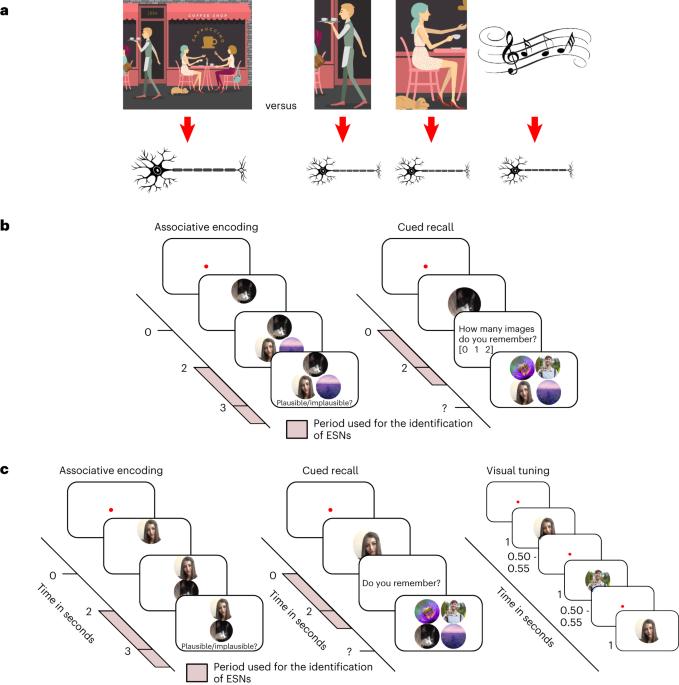Hippocampal neurons code individual episodic memories in humans
IF 21.4
1区 心理学
Q1 MULTIDISCIPLINARY SCIENCES
引用次数: 0
Abstract
The hippocampus is an essential hub for episodic memory processing. However, how human hippocampal single neurons code multi-element associations remains unknown. In particular, it is debated whether each hippocampal neuron represents an invariant element within an episode or whether single neurons bind together all the elements of a discrete episodic memory. Here we provide evidence for the latter hypothesis. Using single-neuron recordings from a total of 30 participants, we show that individual neurons, which we term episode-specific neurons, code discrete episodic memories using either a rate code or a temporal firing code. These neurons were observed exclusively in the hippocampus. Importantly, these episode-specific neurons do not reflect the coding of a particular element in the episode (that is, concept or time). Instead, they code for the conjunction of the different elements that make up the episode. Kolibius et al. show that individual neurons in the human hippocampus code for particular episodic memories.

海马神经元编码人类个体的情景记忆。
海马体是情景记忆处理的重要中枢。然而,人类海马单个神经元如何编码多元素关联仍然未知。特别是,每个海马神经元是否代表一个事件中的不变元素,或者单个神经元是否将离散事件记忆的所有元素结合在一起,这一点存在争议。在这里,我们为后一种假设提供了证据。使用来自总共30名参与者的单个神经元记录,我们发现单个神经元,即我们所称的特定于情节的神经元,使用速率码或时间触发码来编码离散的情节记忆。这些神经元仅在海马体中观察到。重要的是,这些发作特异性神经元并不反映发作中特定元素(即概念或时间)的编码。相反,它们为构成这一集的不同元素的结合编写代码。
本文章由计算机程序翻译,如有差异,请以英文原文为准。
求助全文
约1分钟内获得全文
求助全文
来源期刊

Nature Human Behaviour
Psychology-Social Psychology
CiteScore
36.80
自引率
1.00%
发文量
227
期刊介绍:
Nature Human Behaviour is a journal that focuses on publishing research of outstanding significance into any aspect of human behavior.The research can cover various areas such as psychological, biological, and social bases of human behavior.It also includes the study of origins, development, and disorders related to human behavior.The primary aim of the journal is to increase the visibility of research in the field and enhance its societal reach and impact.
 求助内容:
求助内容: 应助结果提醒方式:
应助结果提醒方式:


